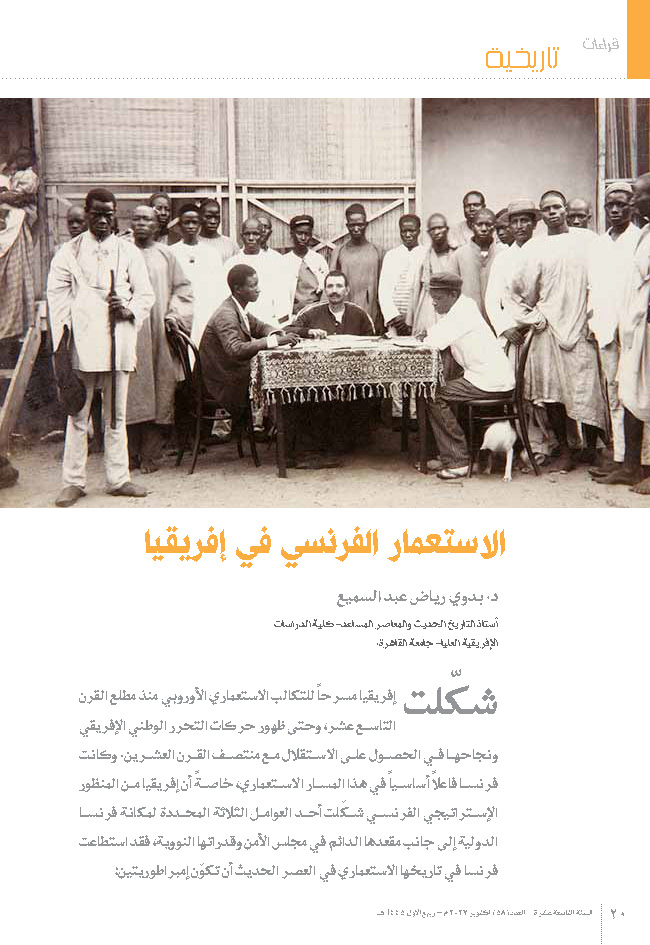Publisher: Qira’at Afriqiyah Magazine
Issue: 58, October 2023
ISSN: 2634-131X
Year : 19
Pages: 20-41
Author: Badawi Riad Abel Samea
Download pdf

Abstract:
This study deals with French colonialism in Africa, focusing on sub-Saharan Africa in terms of the reasons that led France to enter the field of European colonialism in Africa, and the areas occupied by France in sub-Saharan Africa after the occupation of Algeria in 1830 and Tunisia in 1881, and after the Berlin Conference of 18841885/, in which the African continent was divided at the table of Europeans without the presence of any African country. It also dealt with the most prominent African resistance movements to the French occupation, especially in West Africa, which eliminated the French and defended their land, and the French could not seize the African land only on their remains. The study also dealt with the philosophy of French rule in Africa, which was based in essence on the basis of direct rule, which did not leave Africans an opportunity to express themselves, and the methods applied by the French to dye the colonies with the French dye, and the developments that have occurred in the French system of government in Africa since World War II, which resulted in the issuance of several constitutions to develop France's relationship with its African colonies, the most important of which was the Constitution of the French Fourth Republic, which was issued in October 1946, and then the draft framework law in 1956 It gave the colonies wider powers and each individual colony had the right to have a constitution, and finally the Constitution of de Gaulle in 1958, which gave all French colonies the choice in a popular referendum between direct independence and full autonomy within the French Community. The study also presented the end of French colonialism in Africa, and the effects of this colonialism on African countries and societies, some of which still remain until now.
